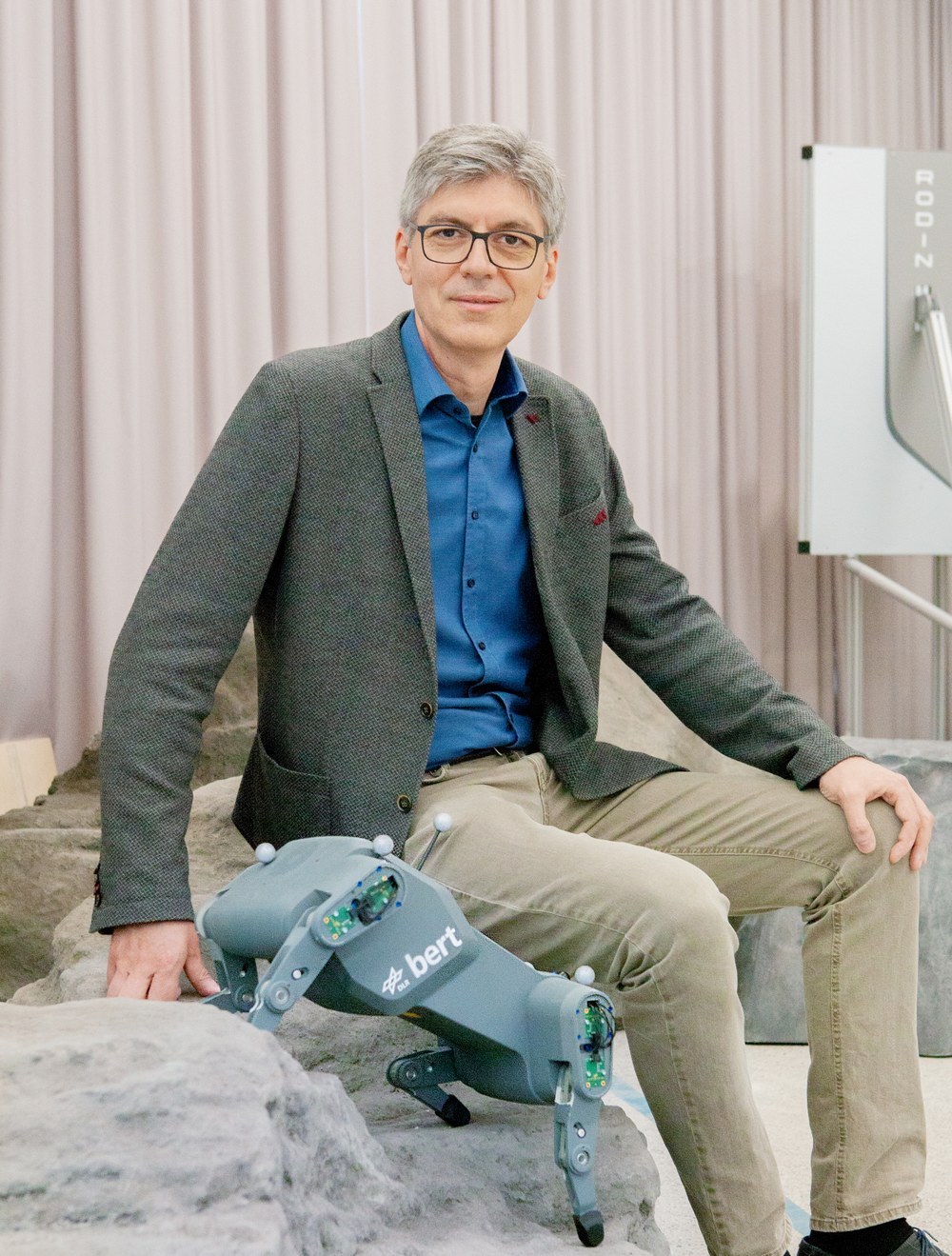Institute director Alin Albu-Schäffer awarded prestigious ERC Advanced Grant
For his running robotics project M-Runners (Modal Nonlinear Resonance for Efficient and Versatile Legged Locomotion), the head of the institute, Prof. Alin Albu-Schäffer, was awarded one of the European Commission’s most prestigious science project grants on March 28, 2019.
The goal of the project is to increase understanding of the fundamental principles of leg-based motion so that four- and two-legged robots can be developed that exhibit similar movement characteristics in terms of versatility and efficiency as their biological counterparts.

Institute director Alin Albu-Schäffer with Bert, the four-legged running robot. It is a platform for researching highly dynamic and efficient running.
The central hypothesis of the research project is that biological locomotion is fundamentally determined by the biomechanical resonance properties of the respective body, and that a scientific breakthrough in robotic locomotion essentially depends on the understanding and use of these phenomena. When the body is designed so that walking and running correspond to intrinsic periodic movements of the system, control becomes simple. Robustness and energy efficiency are then the natural consequences. However, we are lacking the mathematical methods today for the description, analysis, design and control of nonlinear resonances and elastically resonant robots. Therefore the project’s primary goal is the design of a new theory of nonlinear oscillations that can be applied to elastic multi-body systems, both biological and robotic.
The M-Runners project conducts interdisciplinary research at the interface between robotics, nonlinear dynamic systems, biomechanics, neuroscience and artificial intelligence (AI).
The primary application scenario is planetary exploration in hard-to-reach areas, such as canyons, craters, or lava tubes on Mars or the Moon. However, potential areas of application extend from the health sector via assistance robotics to use in disaster areas.
The ERC Advanced Grants are awarded to outstanding researchers with excellent scientific achievements and particularly significant and original research results. As principal investigators, they conduct research projects that are carried out in a public or private research institution in one of the EU member states or associated countries.
The grant to Prof. Alin Albu-Schäffer was the second prestigious ERC Grant received by the Institute of Robotics and Mechatronics within a few months. Just in November 2018, Christian Ott received the ERC Consolidator Grant for his research on humanoid walking robotics. In the NatDyReL project, Ott is researching the foundations for a novel generation of humanoid walking robots based on intrinsically elastic drives. He can draw on the many years of experience of the DLR walking robotics group with torque-controlled robots such as the humanoid robot TORO.
